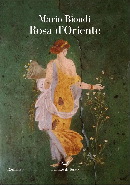Per una lettura documentata


- Sito creato il 15/4/1995 dallo scrittore Mario Biondi © | Aggiornato | @ Contatti 0


I romanzi di Mario Biondi ©
Gli occhi di una donna
(1985 - The Beginning in English)


Benvenuti. Questo sito è totalmente gratuito e NON fa uso di cookie. Non viene raccolto NESSUN dato personale.